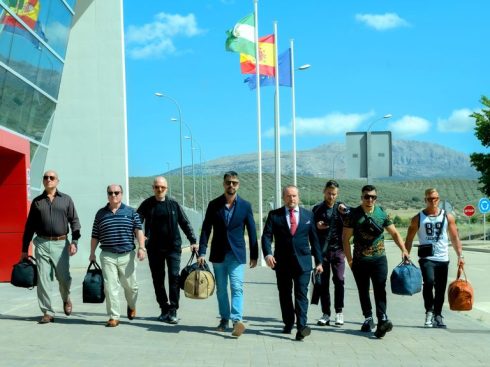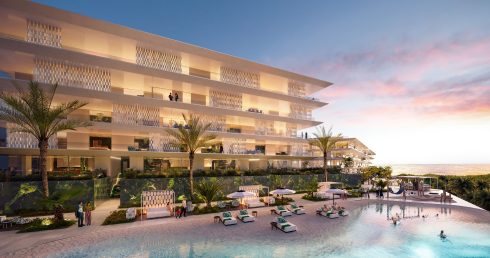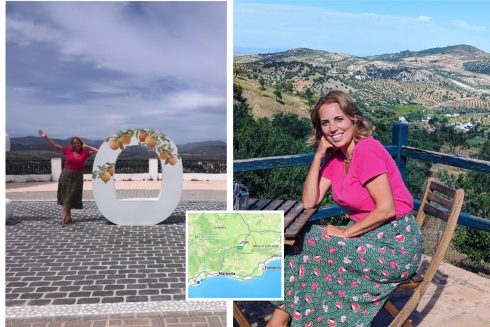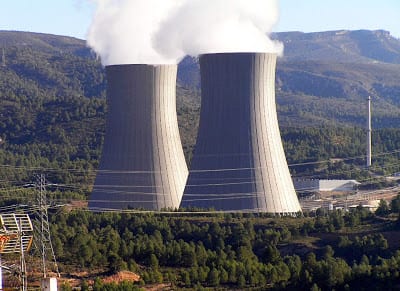IF you happened to pick up the Sunday Times last week, you may have spotted an article declaring Marbella the epicentre of the ‘Costa del Globalised Crime’.
The piece by senior journalist Matthew Campbell brands the tourism hotspot as the ‘global headquarters’ for a ‘multinational array of organised criminal gangs.’
He cites the more than 100 mafias from 59 different countries that operate there, and he’s not wrong; it would be foolish to deny the existence of these criminal gangs.
But they are hardly anything new. As told in the recently released popular crime drama Marbella on Movistar+, gangsters have roamed the Costa del Sol and even the Costa Blanca for decades.
READ MORE: Moment ‘drug traffickers’ are dragged out of Marbella padel tennis club

The fact is the strategic location of the Spanish costas means they will always be a major entry point for drugs, particularly cocaine from South America and hashish from Morocco.
The sheer amount of product being sent via containers to the port of Algeciras and via ‘narco’ speed boats up and down the coastline has never ceased.
And the only place which has seen a big increase over recent years is on the Algarve of Portugal, and that’s our next door neighbour.
Drug traffickers have long been able to pay off police and border officials – who have some of the lowest salaries in Europe.
Meanwhile the constantly high volume of contraband being transported makes it impossible to make a meaningful dent in their operations – with just 10 containers filled with cocaine seized in Algeciras port in 2022.
For reference, the port manages around four million containers per year.
The story is repeated across Spain, with just 2% of containers being searched in Barcelona and a similar amount in Valencia and Bilbao.
While the recent shootings – officially five, although we can reveal there may be as many as a dozen – can be worrying, it’s important to stress the gangsters are not targeting innocent civilians.
Indeed, almost every time it happens, it is either a direct attack on a rival gang or just sending a message.
No one has been seriously hurt in any of the reported incidents so far this year.
And they are a far cry from the days of the Kinahans in the early 2000s – which saw deadly shootouts on the streets of the Costa del Sol. But even then, very few innocent bystanders were killed.
Or even six years ago, when Colombians assassinated a man outside a church in Marbella’s San Pedro.
Even then, it was understood that the victim had become involved in organised crime and had amassed a huge debt with a mafia.
So no, you are not going to be shot if you visit or move to Marbella – unless you want to start trafficking drugs.
I certainly feel more safe here than I did when I lived in London. And neither my News Editor colleague, Dilip, or the editor Jon Clarke, who’s lived in or around Marbella for two decades, has ever seen a violent incident or been attacked. Even robbed.
When comparing, say Manchester or Stockholm to Marbella, I certainly feel far safer walking home alone late at night.
You never get the feeling of being attacked or stabbed in a dodgy area, nor be worried of something kicking off on the bus or at a bar. And that’s even on second line Puerto Banus late on a Friday night.
Meanwhile, authorities are fighting back by putting more officers on the streets and increasing their surveillance via drones and canines.
This week alone, we have seen five men lying on the ground outside Aldi at police gunpoint, roadblocks at more than half a dozen places and a raid with a helicopter at a padel club.
The country’s best trained detectives are also now starting to tackle the scourge of police corruption.
On the Costa del Sol, a secret, plain-clothed police force hides in plain sight, keeping a constant eye on the biggest mafia players – and are ready to move in and arrest at the drop of a hat.
The 30-strong force, called GRECO, works on rotation around the country, with officers switched out once a month to four distinct bases around the country.
This is so they cannot form unhealthy relationships with gangsters and be exposed to bribes and corruption.
The Olive Press has reported alongside them a number of times over recent years and they have been behind a number of dramatic arrests and know all the key gangsters.
“We work out at their gyms, we play padel at their clubs, we drink in their bars,” one told us last year. “We know exactly who they are and we keep close tabs on them.”
He added: “Trust me, they don’t want to get into wars. They want to keep below the radar and get on with their business. Headlines and high-profile policing only makes their lives more difficult.”
With this honest, open appraisal, it seems certain they and their uniformed colleagues at both the National Police and Guardia Civil will help to keep the coast safe this summer.
So do not fret, residents and visitors to Marbella alike, keep your nose clean and you’ll be perfectly safe.








